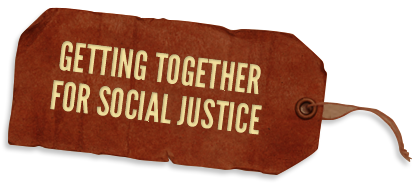Anti-Semitism can be a convenient term at times because it has widespread recognition. However I generally use “anti-Jewish oppression” instead of anti-Semitism because it is more accurate, more comprehensive, and I want to separate the concept from the recent use of anti-Semitism to describe critiques of policies of the state of Israel.
Labeling a comment, person or policy anti-Semitic is often not very helpful and focuses attention on an individual act or procedure rather than on the institution it supports. I think it is more useful to point out how those comments, behaviors or policies support or perpetuate anti-Jewish oppression in specific ways.
Use of anti-Semitic to refer to Jewish oppression also makes invisible the oppression of other Semitic people. It misrepresents Jews because not all Jews are Semitic in geographic origin; the ancestors of many Jews converted to Judaism in other parts of the world. I write extensively about the institutionalized system of oppression targeting Jews for discrimination, exploitation, and violence, and the term “anti-Jewish oppression” better captures those nuances, provides a parallel to the phrase “anti-Muslim oppression”, and therefore highlights the common history of systemic attack that Muslims and Jews have both experienced within Christian dominated Europe and the U.S.
Anti-Jewish oppression is parallel to anti-Muslim oppression (Islamaphobia has some of the same limitations as anti-Semitism)- both are pervasive, institutionalized, systematic and intertwined with other systems of oppression, particularly Christian dominance and white supremacy. These phrases allow us to see the common history of marginalization, scapegoating, demonization, and violence that European and U.S. Christian ruling elites have directed at Muslims and Jews over the centuries. Dominant Christianity declared Jews as the enemy within and Muslims as the enemy outside— both groups were portrayed as racial as well as religious outsiders: evil, dangerous, and eternal enemies to Christians, Christendom, and civilization. These ideas show up in people’s thoughts and beliefs as discomfort, confusion, misinformation, generalizations about Jews and Muslims, and, of course, discrimination, hate crimes, and other forms of individual and collective violence.
The trauma from this violence and the internalization of this worldview affect us individually and communally. We can expect them to show up all the time, in different guises, not just in ourselves, but in our friends, colleagues, and allies as well as in those we struggle against. It should therefore not be surprising that anti-Jewish oppression shows up on the left. From Marx to Lenin, to Stalin, to current anti-war movements—there are plenty of examples. Specifically, anti-Jewish oppression on the left can look like exclusion, denial or minimization of Jewish concerns, generalizations about Jews, hostility towards or attacks on Jews, minimizing the impact of anti-Jewish oppression, not responding to anti-Jewish oppression and so on.
Another reason I use anti-Jewish oppression is to emphasize that in Christian dominated societies it is always present, built into the foundational writings and policies and practices of Christianity. Sometimes there are periods when there are dramatic instances of it such as the Jewish Holocaust. But Germany had a thousand-year history of anti-Jewish institutions, culture and violence going back to before the first Crusade in 1095. Similarly, the Russian programs against Jews arose from centuries of anti-Jewish Christian culture, exploitation and violence.
I don’t propose that we retire the word anti-Semitism but I do suggest that anti-Jewish oppression better and more accurately captures the scope, scale, and 1700-year history we are up against and better supports our efforts to build a widespread and inclusive movement for racial, economic, and gender justice.
Please send comments, feedback, resources, and suggestions for distribution to paul@paulkivel.com. Further resources are available at www.paulkivel.com.
All articles may be quoted, adapted, or reprinted only for noncommercial purposes and with an attribution to Paul Kivel, www.paulkivel.com. Creative Commons Attribution – Noncommercial 3.0 United States License. To view a copy of this license, visit here.
